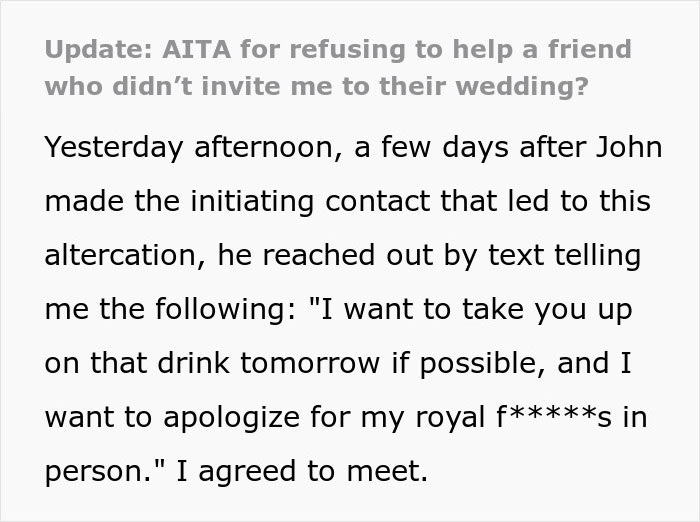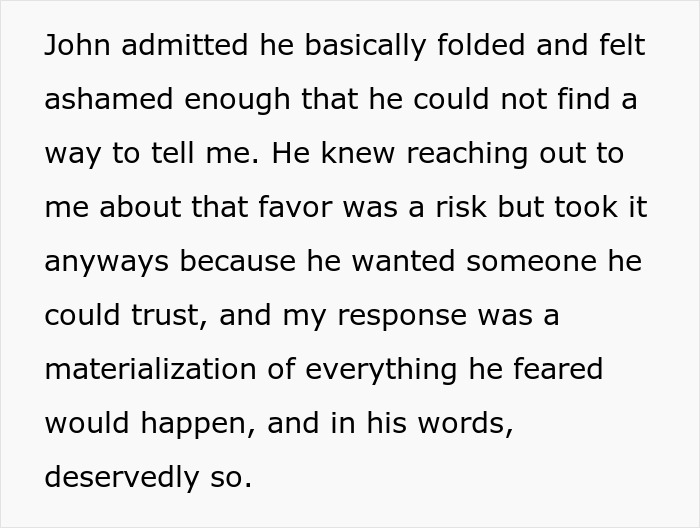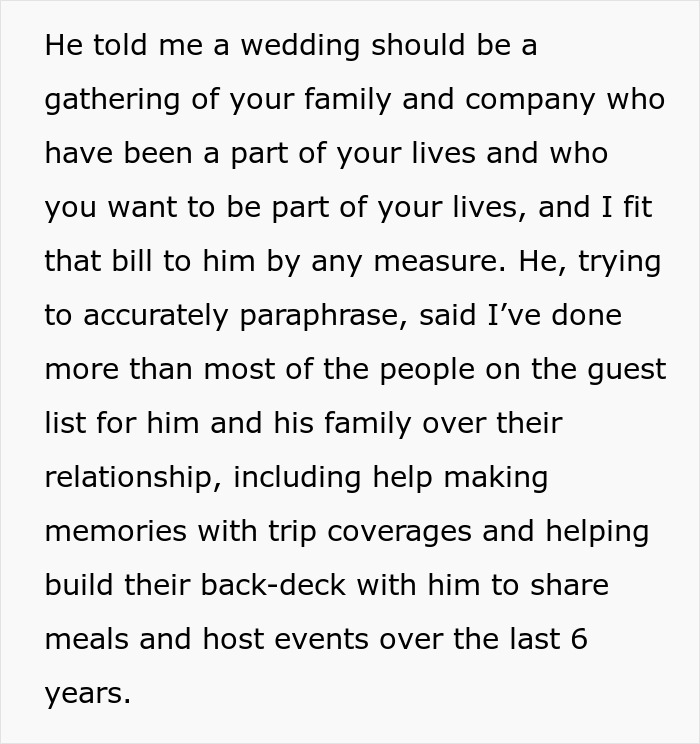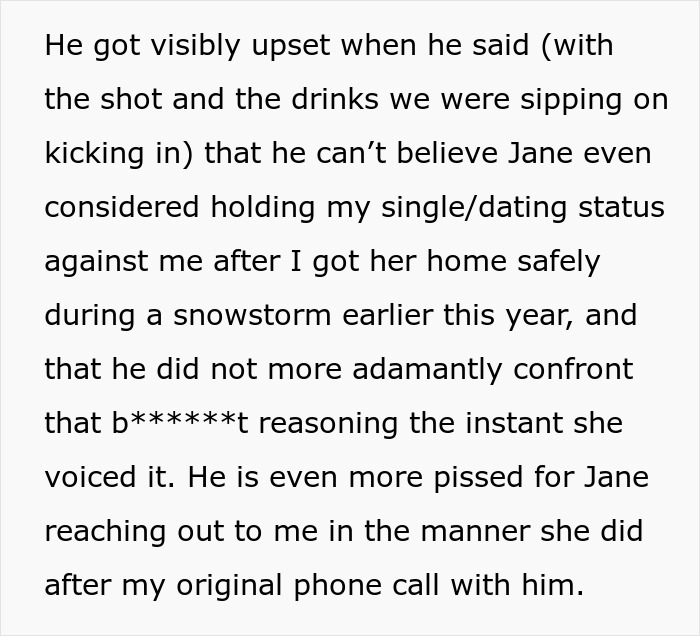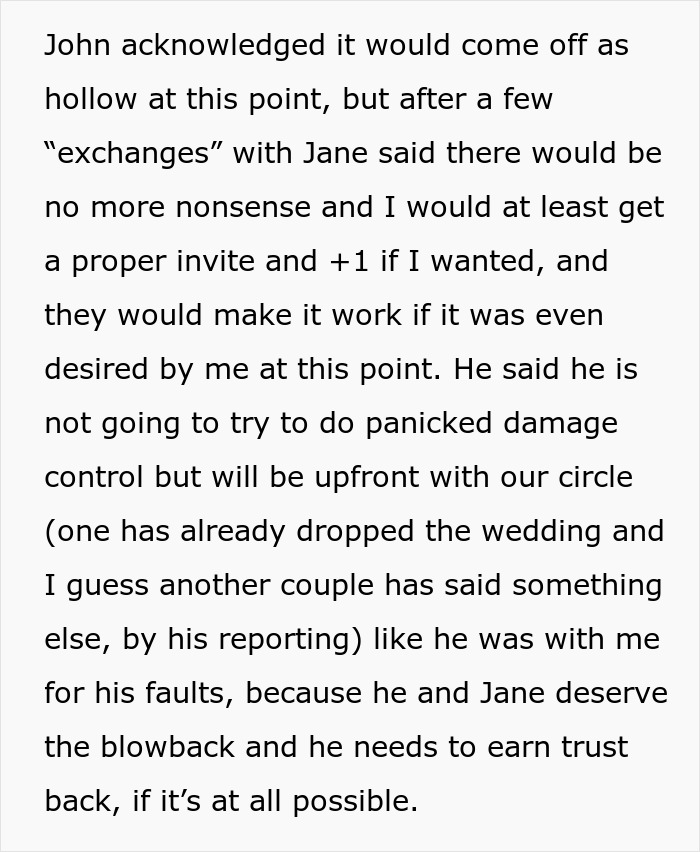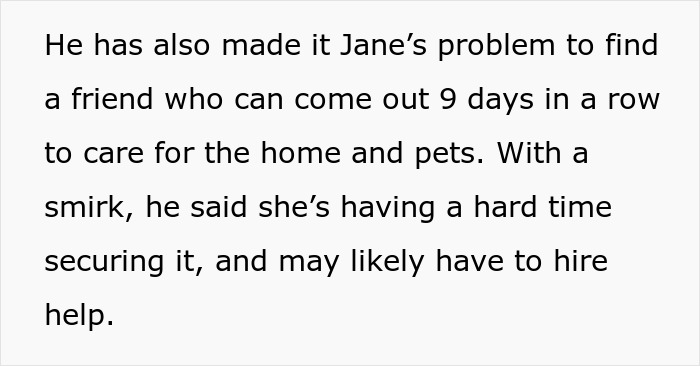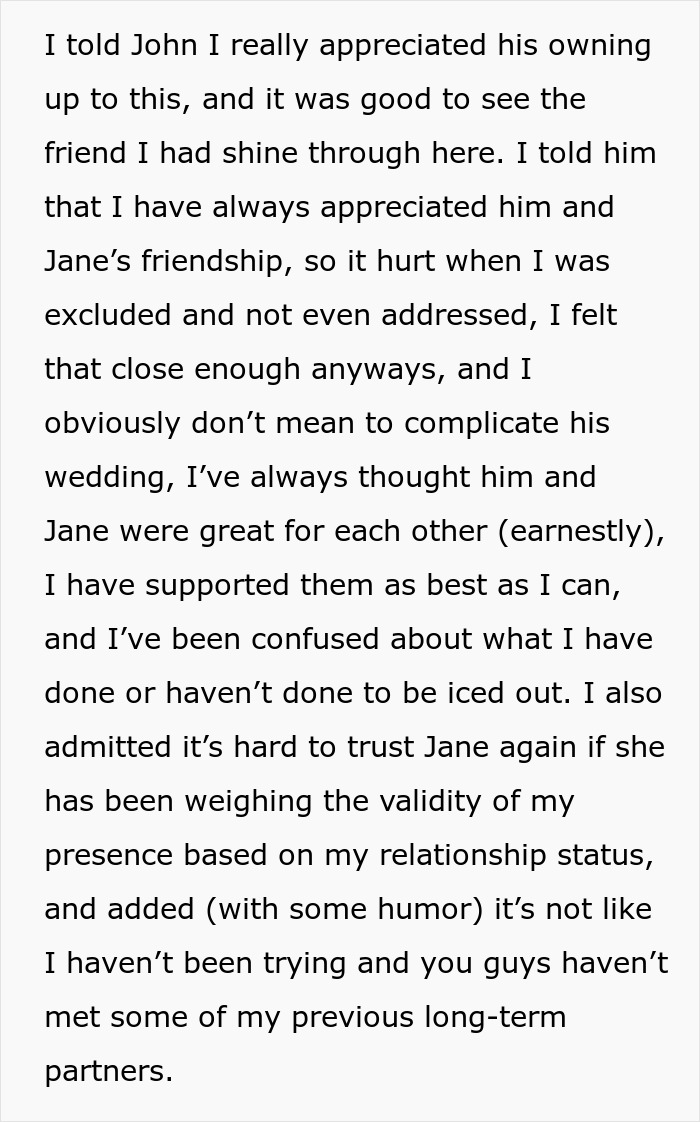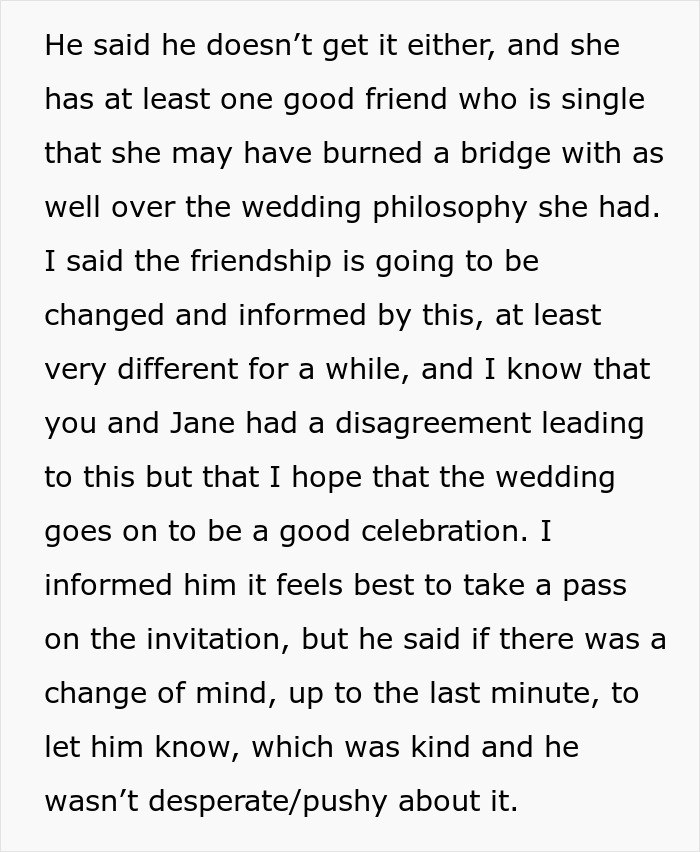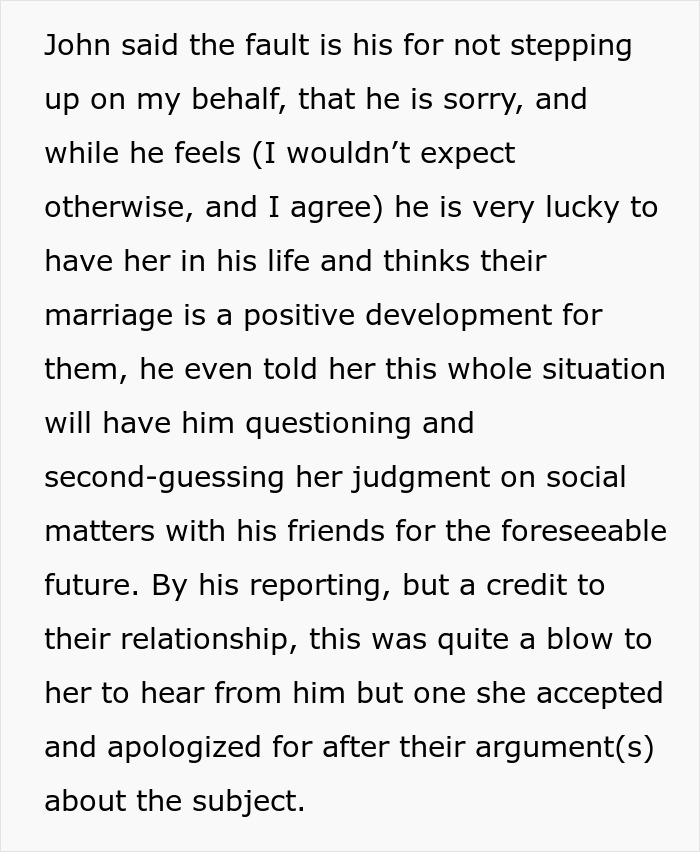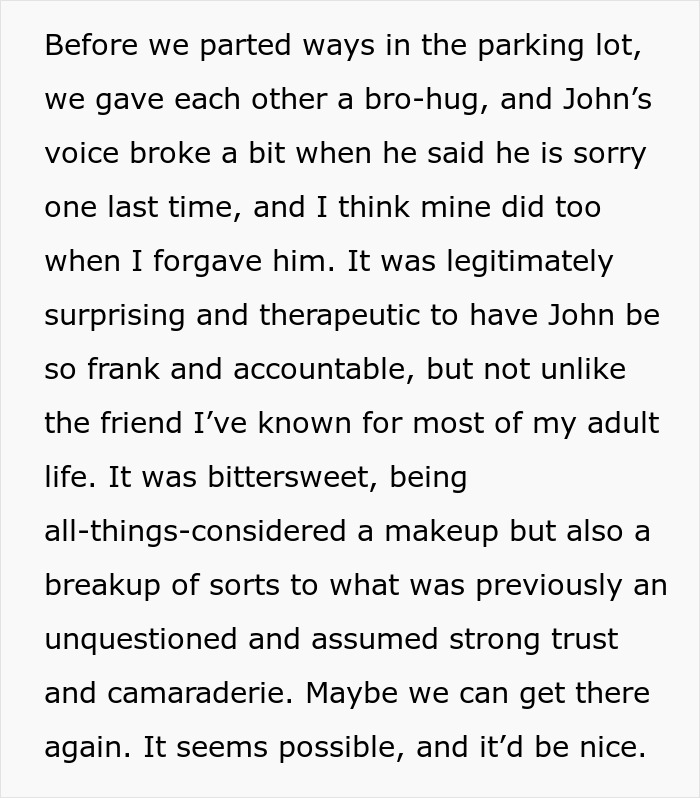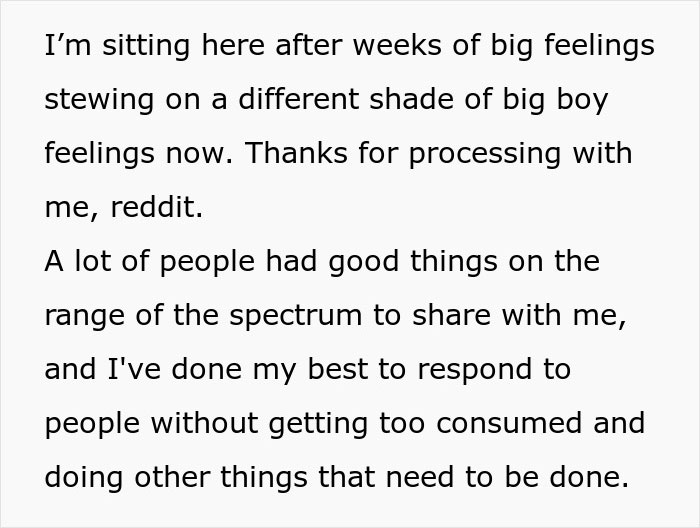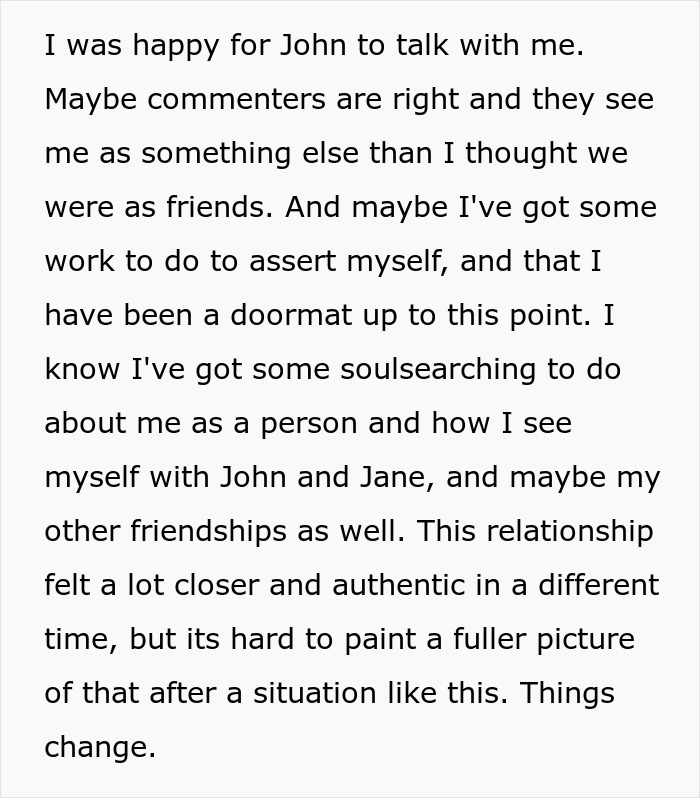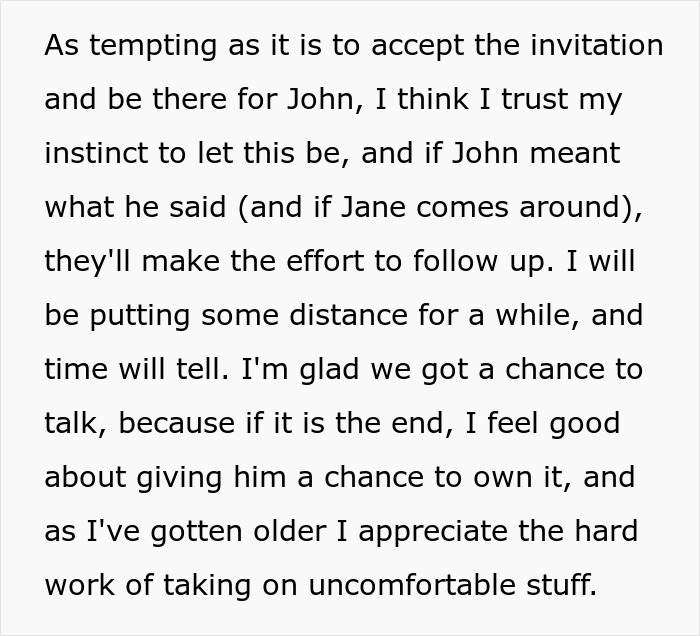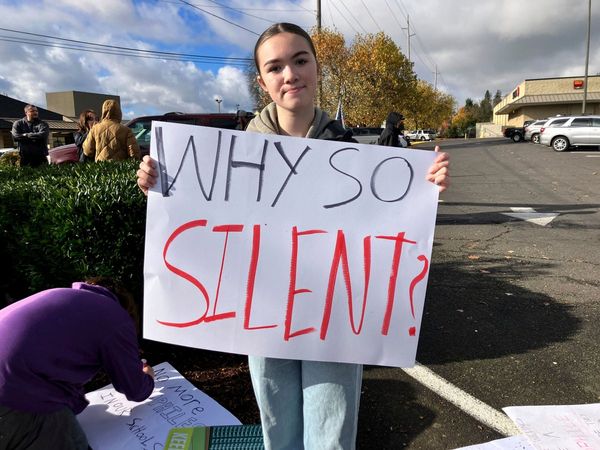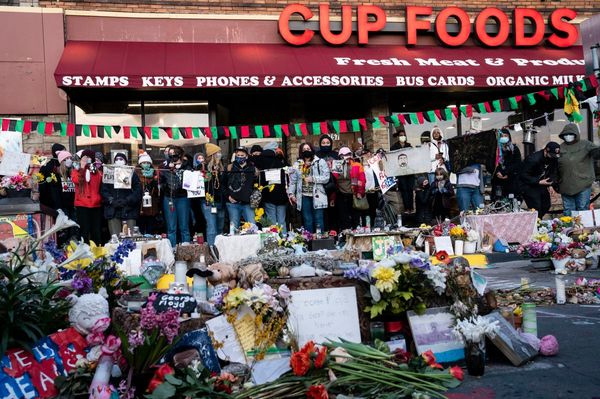Building a formidable friendship can take a while. However, a single mistake can make a lasting impact on the relationship.
Reddit user EntertainerKey8553 had been close with his former colleague John for over a decade. But things reached an unexpected breaking point one day when he found out he wasn’t invited to his longtime friend’s wedding.
Feeling hurt and betrayed, he refused to grant John and his fiancée one of his usual favors as a way to set boundaries. This also prompted him to consider whether he was wrong to do so, and he turned to the internet for some answers.
It only takes one mishap to ruin a longtime friendship
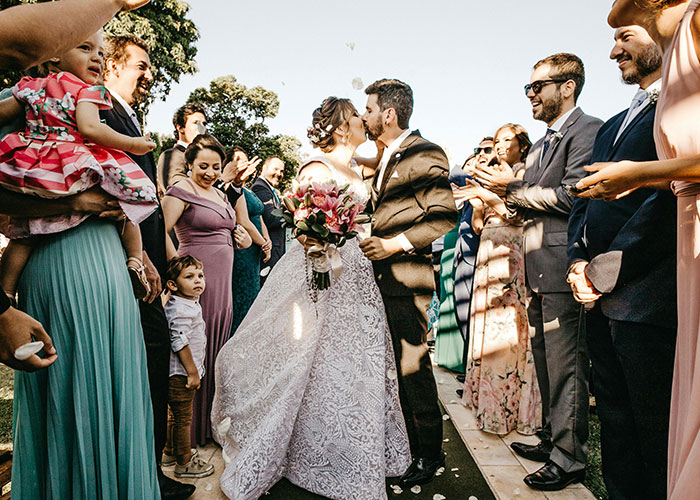
Image credits: Jonathan Borba / pexels (not the actual photo)
A man wasn’t invited to the wedding of his longtime friend John
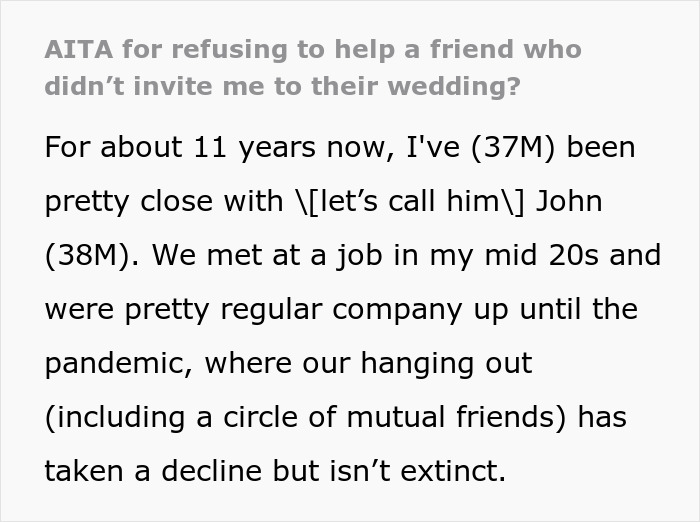

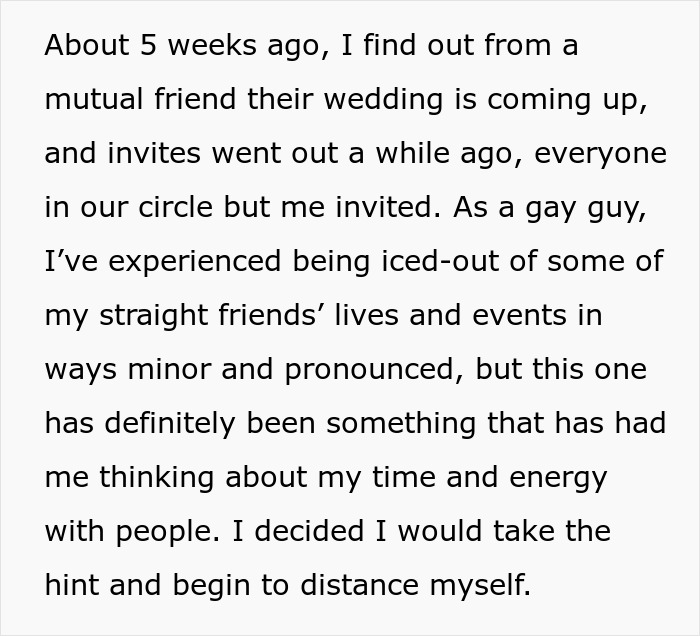
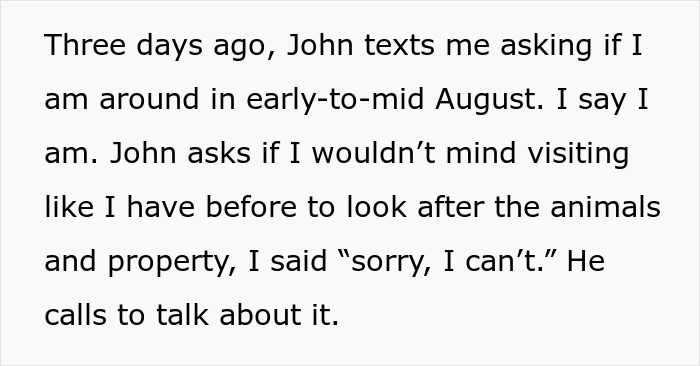

Image credits: RDNE Stock project / pexels (not the actual photo)
He eventually let John know about feeling left out and betrayed
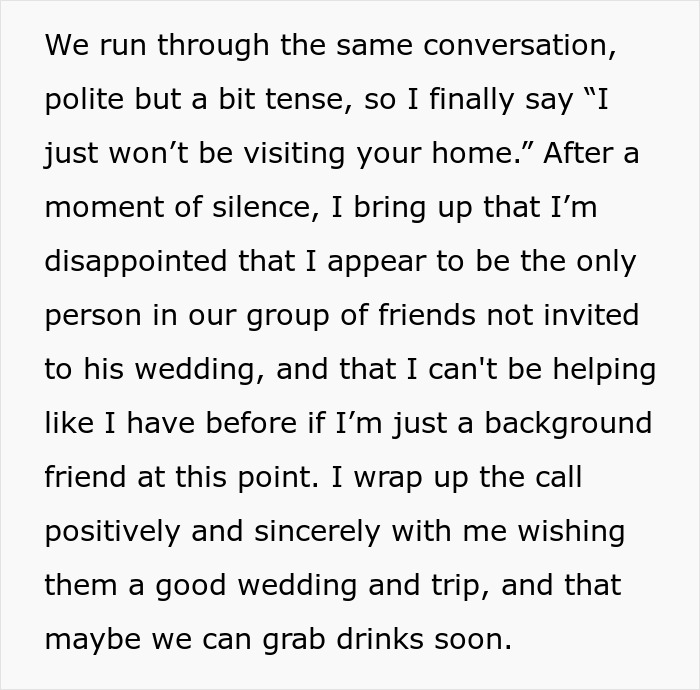
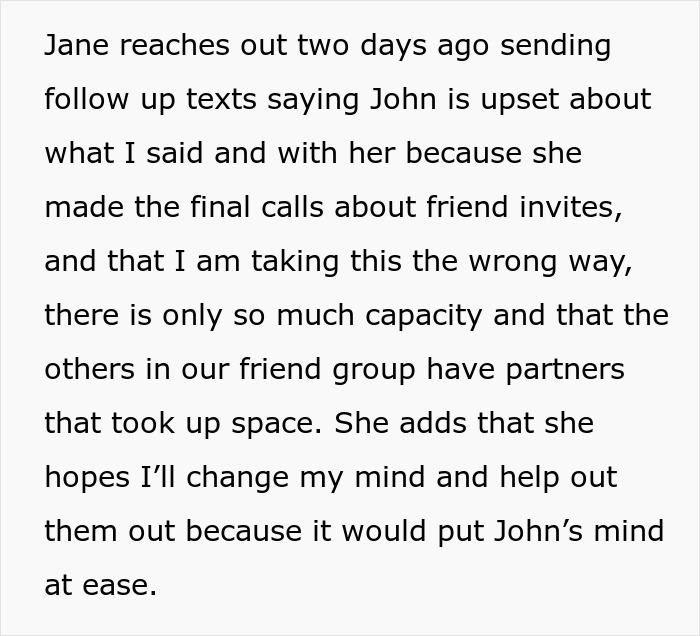
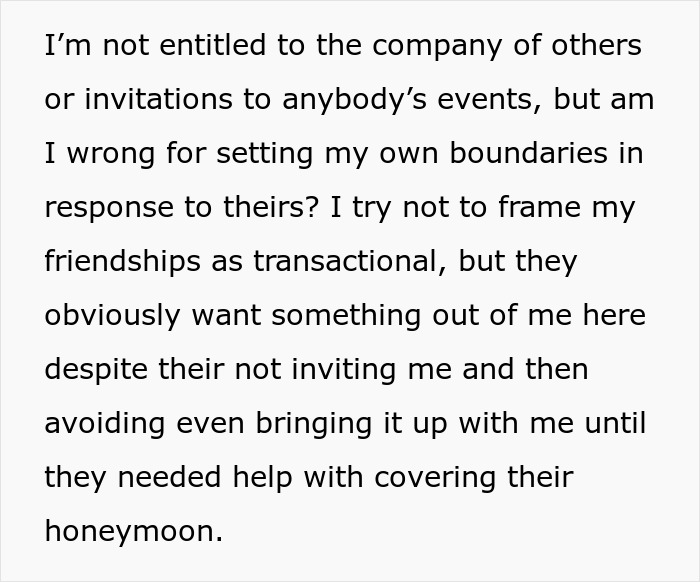
Image credits: EntertainerKey8563
Friend betrayals can carry serious repercussions

Image credits: Andrew Neel / pexels (not the actual photo)
The author appears to be having difficulty digesting what happened. But according to experts, his actions and emotions are all valid. As psychology professor Dr. Jennifer Freyd tells The Guardian, such a situation could cause what she calls “betrayal trauma.”
“We are a social species; when someone betrays us, it’s a real threat to our wellbeing,” Dr. Freyd said.
She also pointed out the toxicity and disloyalty and how it could lead to possible mental health challenges. PTSD, anxiety, dissociation, and substance abuse are some known symptoms.
Dr. Freyd says the author’s reaction was likely an act of self-protection that triggered the fight-or-flight response.
“You don’t want to continue to be betrayed,” she explained.
Getting past a friend’s betrayal is about what works best

Image credits: Armin Rimoldi / pexels (not the actual photo)
For trauma experts, such coping reactions from the author aren’t out of line as long as they work for him. As psychotherapist Dr. Gina Davis wrote in an article for her website, “There is no universal right or wrong way to proceed.”
But if you’re willing to give the friendship another shot, Dr. Davis urges deep self-evaluation. Ask yourself if it is worth it, given how your friend may react. Will they hear you out? Or will they deny any wrongdoing and even turn the blame around?
Ultimately, Dr. Davis reminds us to focus on ourselves when getting past a friend’s betrayal. You can only determine whether a friendship is right for you. Never be pressured into something you’re not ready for.
Based on his account, the author feels significant damage has been done and seems to be looking to move on from the ruined friendship. But he is willing to have a dialogue with John, and that, in itself, is a crucial silver lining.
What do you think, dear readers? Are these reasonable actions from the author?
Most commenters sided with the author as he provided more context

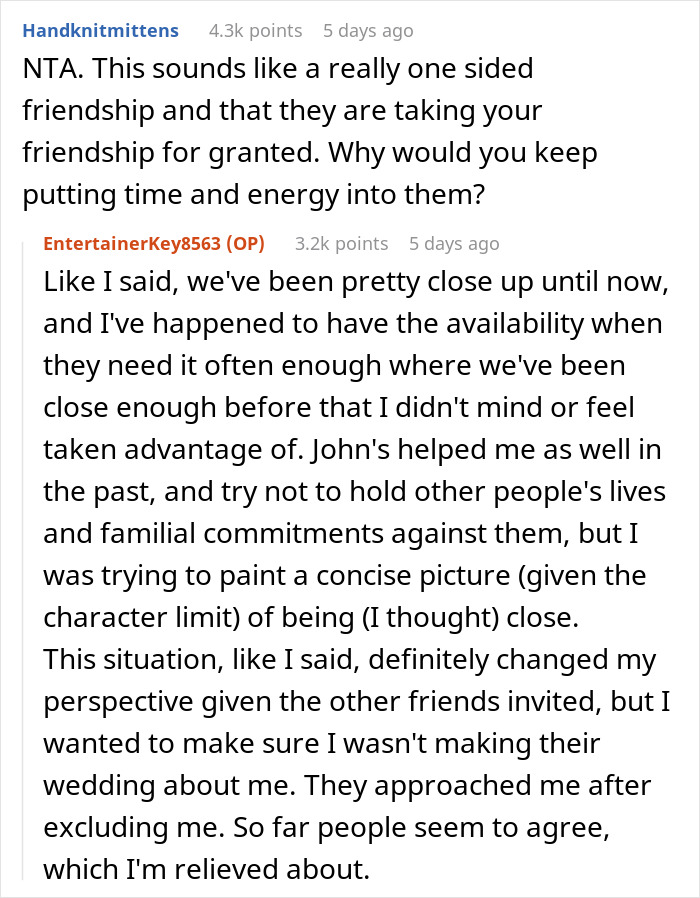


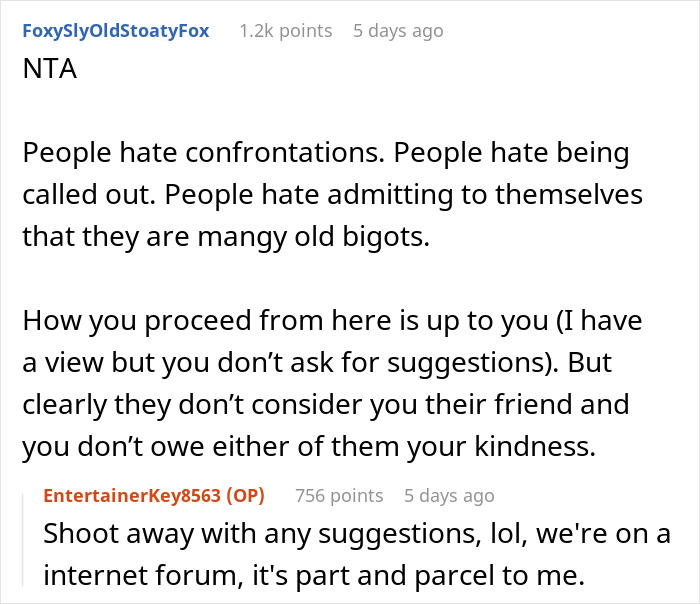
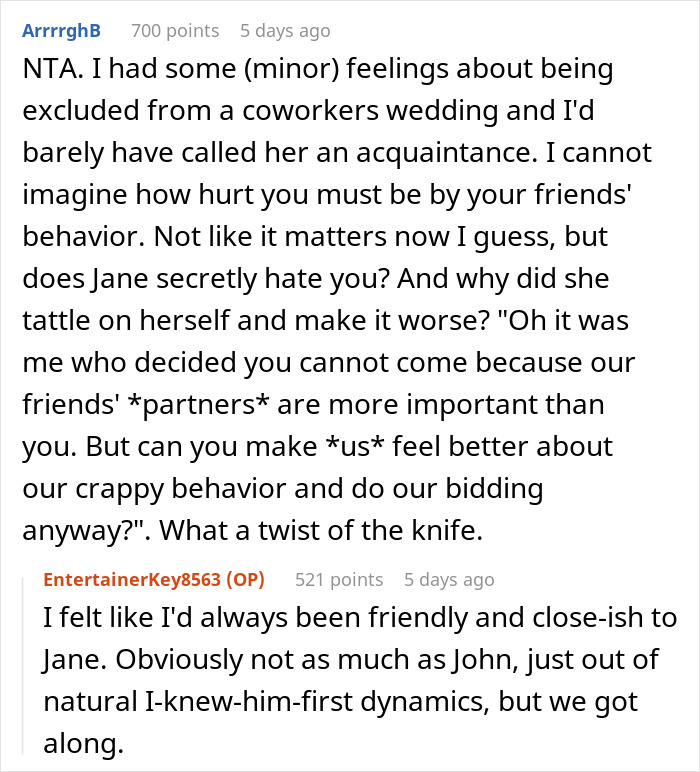
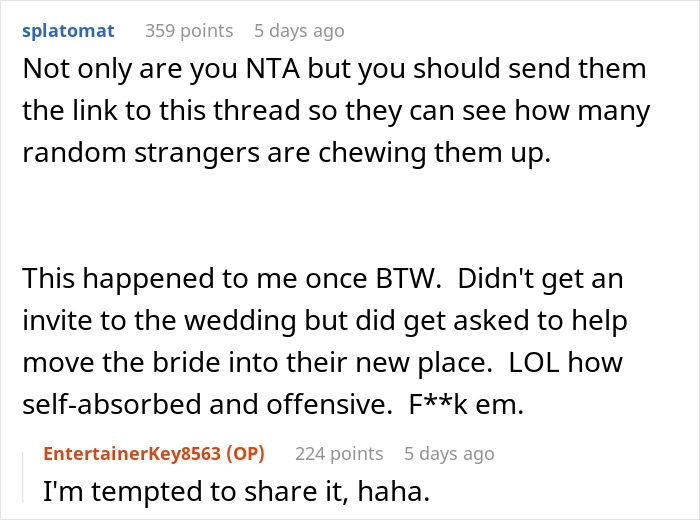

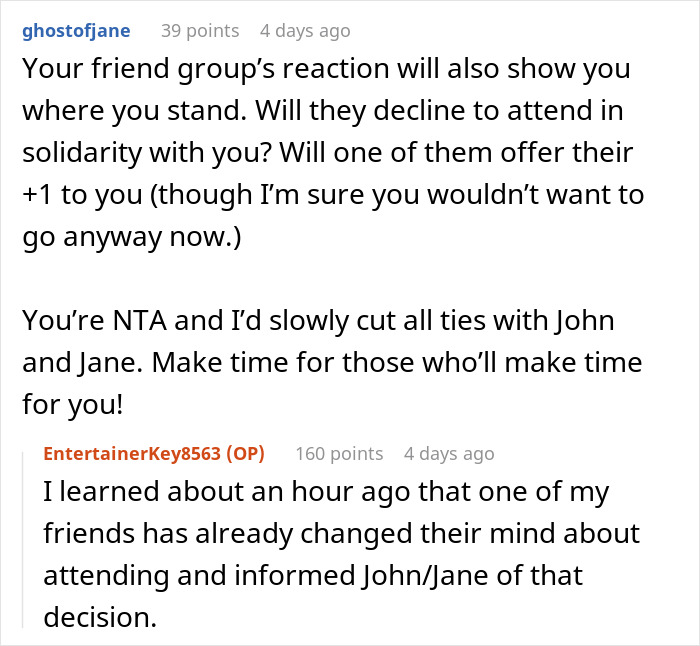

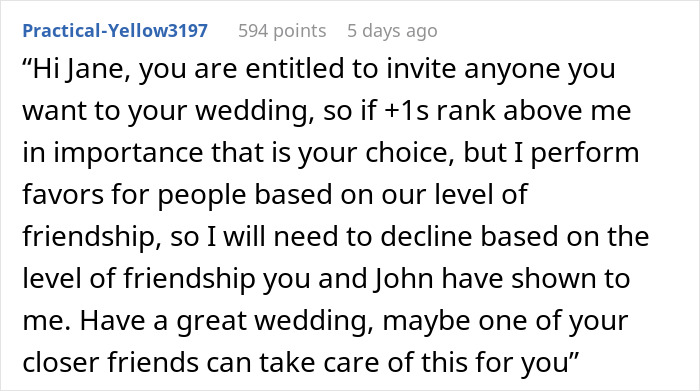

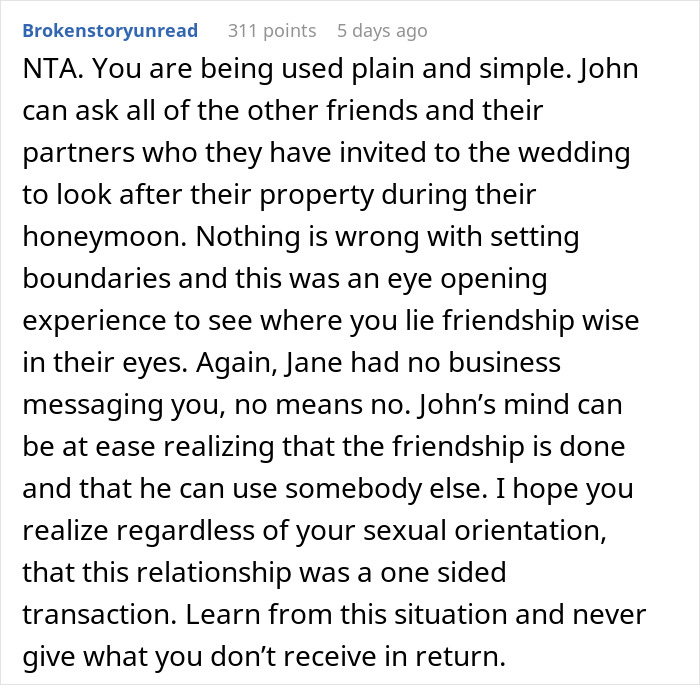
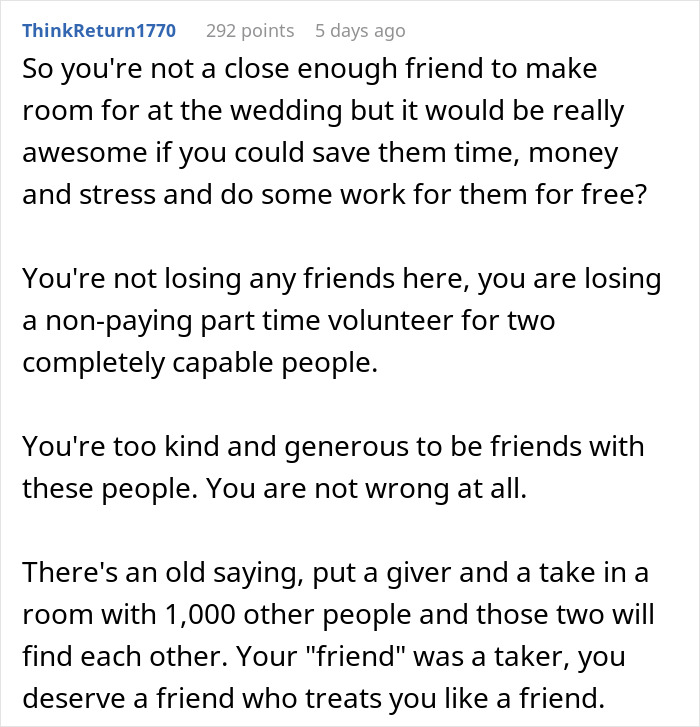
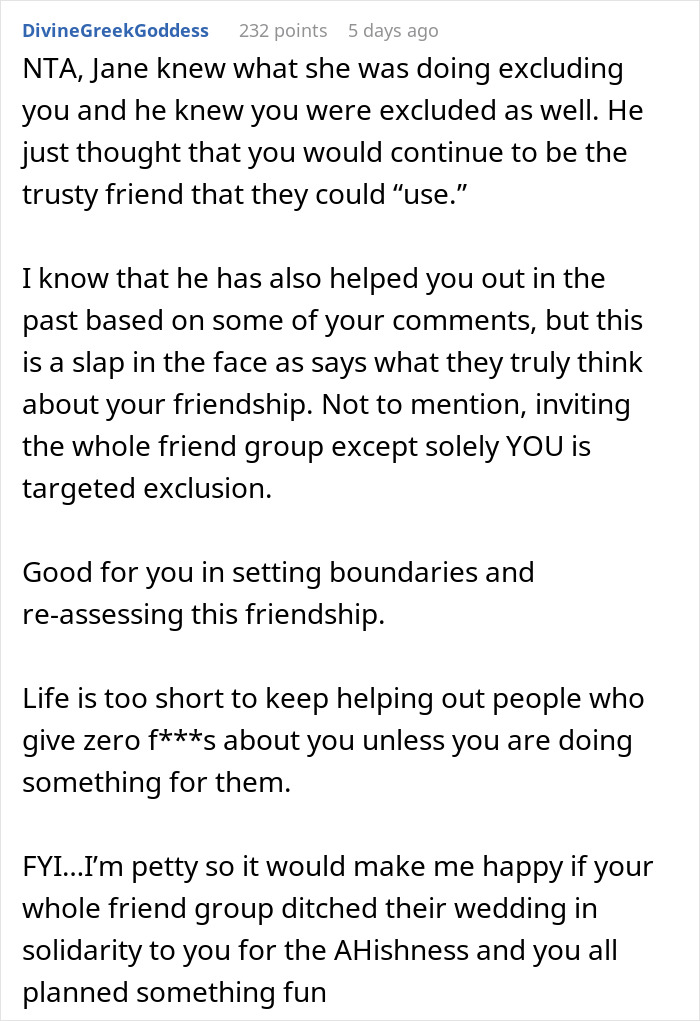






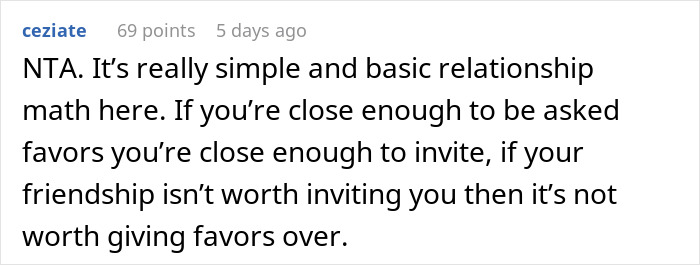


He then gave a lengthy update about his conversation with John
